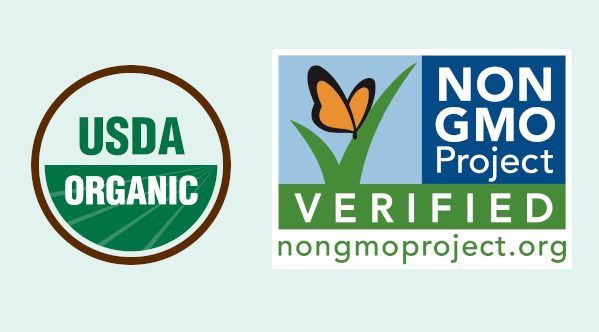By David Gould, FoodChain ID
In light of the current economic crisis, manufacturers are trimming their operational expenses, including their staff. Working with reduced human capital requires them to eliminate redundancies and streamline critical processes wherever possible.
At this same moment in time, the food industry is seeing an acceleration in consumers’ desire for healthier foods. Many consumers look for the Non-GMO Project Butterfly seal and USDA Organic seals when making their food purchases. According to proprietary SPINS data, products that carry both seals experienced higher sales growth than products with only one or the other.
The two standards are complementary to help increase consumer confidence. The organic standard covers a holistic range of topics including environmental protection, animal welfare, food quality, and more. Simultaneously, the Non-GMO Project’s mandatory verification of high-risk ingredients provides added assurance in this critical and fundamental feature of organic systems.
The market has spoken. There is power and value in these seals, which is why over 50% of companies carry both. Yet, not every company that offers both programs has the same customer tools and systems to make managing them easy and efficient. Surprisingly, many certifiers still have no system at all and use old-school spreadsheets to track and manage their certifications.
The COVID-19 pandemic crisis has only exacerbated this challenge as employees are managing multiple certification programs and asked to take on more responsibility within the same timeframes.
Managing multiple certifications can be time consuming and inefficient, especially with reduced staffing. The duplicative processes, paperwork, and annual inspection requirements are also invitations for inconsistencies and errors. Even worse is dealing with two different certification bodies.
FoodChain ID is in a unique position to help overcome these challenges. We have over 33 years of certification expertise, are the technical administrator of the Non-GMO Project Verification Program, and certify over 14,000 organic operators worldwide.
Working with our clients and developers, we met this challenge by re-engineering our SupplyTrak® platform, which is now a single certification management system for USDA organic certification and Non-GMO Project verification programs.
For eleven years, SupplyTrak has helped manufacturers manage their Non-GMO Project Verification. This market-leading, multi-assessment certification management system now works for organic certification in the same way, enabling data to be shared between programs.
This technology addresses several needs, such as a leaner document management process. Since these applications are involved, they require a system that can organize and store program documents for re-use and management over time and keep supply chain mapping quickly accessible.
SupplyTrak’s ability to auto-fill forms streamlines the process of data input. Further, it integrates organic and Non-GMO Project program supply chain data to be shared and used to pre-populate forms, simplify data entry, and decrease time spent on renewals.
Finally, the technology aids manufacturers in tracking the progress of multiple certification applications in one place. For example, they can see when they have submitted their plan, when it is approved, the status of inspections, and when certification is issued.
Of the many lessons learned by our industry during this pandemic, one of the most critical is that leaner teams mean a renewed focus on operational efficiency. The work of certification is only increasing; witness USDA’s newly proposed Strengthening Organic Enforcement rules, which aim to include even more operations within the necessary scope of NOP certification. Emerging technology platforms like SupplyTrak are continually working to identify these challenges and provide solutions.
About the Author:
David Gould is Global Head of Sustainability Programs for FoodChain ID. He is a food scientist by training with a degree in Life Sciences from MIT. He has been involved in the food and agriculture sector for the past 25 years and was one of the originators of non-GMO standards and certification programs.
For more information visit: www.foodchainid.com.





